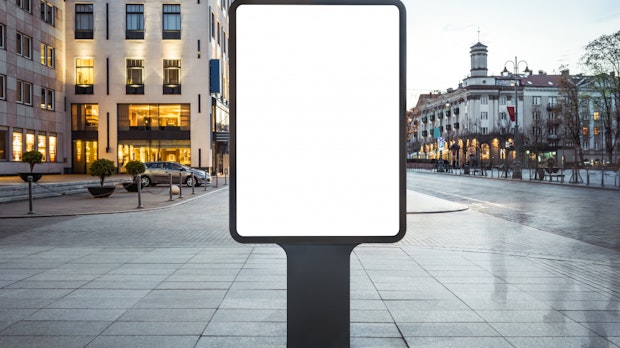Planned advertising ban in lockdown

None Advertising? The proposal falls short. (Photo: photodonato / Shutterstock)
The Saarland Economics Minister Anke Rehlinger (SPD) has made a proposal that is currently making waves outside of the small federal state. After a self-imposed commitment by the retailers did not work, they wanted to ban the advertising of all products that are not essential for basic supplies or daily needs. That should apply from February 22nd, but Rehlinger expects the dealers to follow it from now on.
The waves in the face of such great naivety beat faster within the advertising industry nationwide and within the Saarland merchants. It remains to be seen how the advertising ban should be interpreted – does it only refer to the actually inflationary advertising slips of the discounters or are Saarland retailers no longer allowed to advertise online? And what about TV or radio advertising that refers to specific dealers, but not specific offers?
Fewer contacts? This calculation does not work out
The minister summarizes the reasoning behind it as follows: “The voluntary commitment does not have All led to a rethinking – many shops and department stores that are allowed to continue opening according to the priority principle have not waived some extensive advertising measures in the past few days. This not only leads to greater customer flows, while our most pressing goal is still to avoid contact. There is also a lack of solidarity with the specialty stores, which have to remain closed at the moment. ”However, the latter will not have a cent left in the till if, for example, grocers are no longer allowed to advertise their marginal product ranges. And avoiding contact should also not be helpful if less network-savvy customers, as in previous decades, walk into the shops on Monday and Thursday because there might be something interesting under the promotional goods.
But it gets even stranger: retailers who have just closed their shops are still allowed to offer and advertise their products as part of Click & Collect. This should reasonably ensure a balance to the already busy online trade, but leads to strange situations – for example when a customer wants to exchange a piece of clothing. Then he can order a new one via Click & Collect, but not quickly try it on in the open shop.
The advertising ban is a toothless tiger
It is also a mystery how you want to prevent customers from not informing themselves. Because even if the Saarland may see itself as the center of its own shopping world, customers should be able to find out about promotional goods from food discounters, for example, by going to the website of the respective store. In most cases, as is well known, he makes his offers nationwide (or throughout southern Germany). None of this serves to avoid contact – it would only be logical to actually insist that certain product ranges, which will then be equally difficult to define, may no longer be sold. In the case of alcoholic beverages that are not allowed to go over the counter after a certain time or on certain days, this may still work, with many other decisions the traders will very quickly seek the courts and override the state government with injunctions.
All in all, a thoroughly irritating suggestion – even if Anke Rehlinger explains that Saarland is the first federal state to take such a step (and suggests that more could follow), this will probably not happen Because, sensibly, the CDU coalition partner with Prime Minister Tobias Hans will not make the proposal into law this week. If it does come to that, the courts will quickly put the overzealous politics in their place in their actionism. Because such a law would neither be appropriate (for this purpose the sale and not the promotion of such non-essential product groups would have to be prohibited) nor would it be fair in the interests of those affected – and it would not reduce consumer contacts either, on the contrary.
Most read
The post Planned advertising ban in lockdown appeared first on World Weekly News.
